Project Nanhi Kali: How This Initiative Is Changing Lives Of Girls In India
Project Nanhi Kali is an initiative of Anand Mahindra, Chairman of Mahindra Group. Mr Mahindra began Project Nanhi Kali (which means 'a little bud') at the K.C. Mahindra Education Trust, with the objective of educating underprivileged girls in India.
-
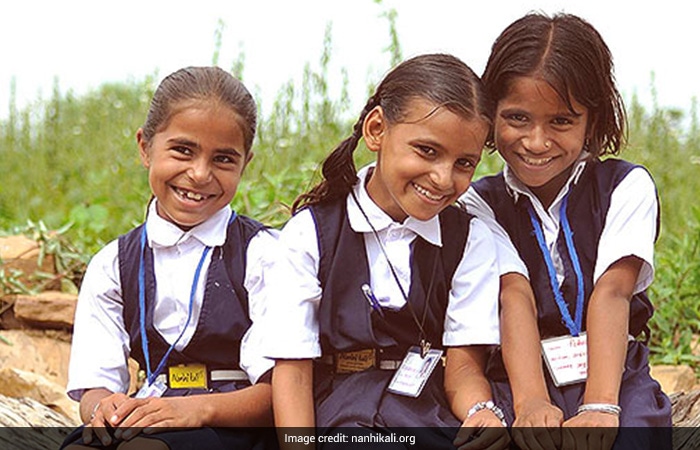 The project was started when India had low female literacy level and female workforce participation, in addition to social issues such as child marriage and child labour. Slowly the project gained momentum.
The project was started when India had low female literacy level and female workforce participation, in addition to social issues such as child marriage and child labour. Slowly the project gained momentum. -
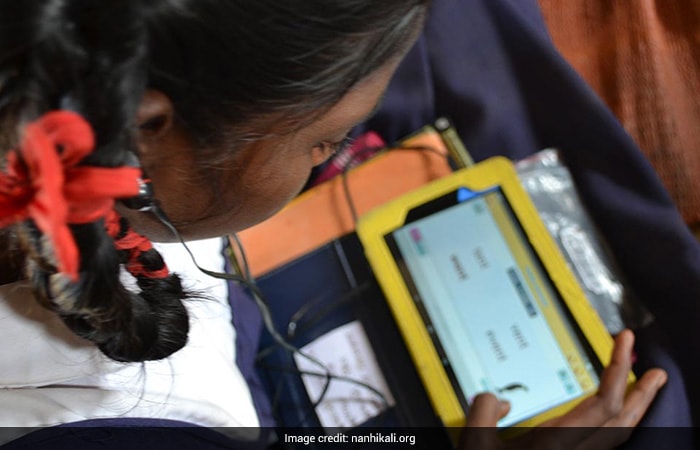 As a part of the Nanhi Kali programme, every girl gets access to a digital device, which is preloaded with smart educational content. In addition, the girls are provided with school bags and school supplies kit. The older girls even get feminine hygiene products, so that they can attend school with dignity.
As a part of the Nanhi Kali programme, every girl gets access to a digital device, which is preloaded with smart educational content. In addition, the girls are provided with school bags and school supplies kit. The older girls even get feminine hygiene products, so that they can attend school with dignity. -
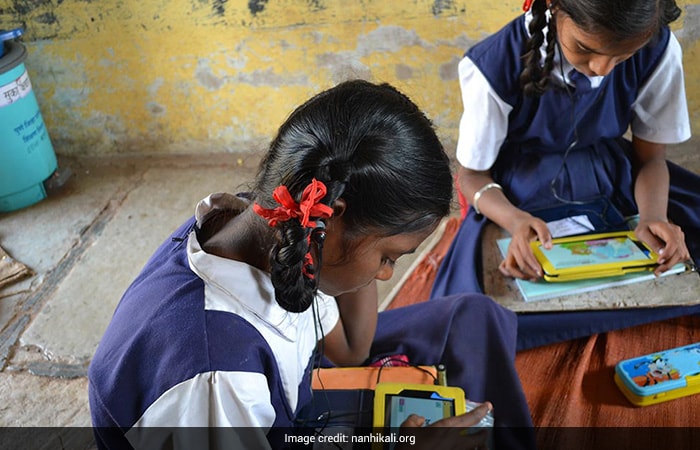 Over the years, Project Nanhi Kali has reached out to over 4,50,000 underprivileged girls across 14 states in India. From far-flung areas such as the hamlets of Krishnagiri in Tamil Nadu to the rural outskirts of Banaras, from the tribal hills of Araku in Andhra Pradesh to the sub-plan tribal district of Udaipur, and from the crowded slums of Mumbai, Delhi and Kolkata, to the more remote but cooler locations of Darjeeling, Project Nanhi Kali is ensuring that girls complete 10 years of formal schooling.
Over the years, Project Nanhi Kali has reached out to over 4,50,000 underprivileged girls across 14 states in India. From far-flung areas such as the hamlets of Krishnagiri in Tamil Nadu to the rural outskirts of Banaras, from the tribal hills of Araku in Andhra Pradesh to the sub-plan tribal district of Udaipur, and from the crowded slums of Mumbai, Delhi and Kolkata, to the more remote but cooler locations of Darjeeling, Project Nanhi Kali is ensuring that girls complete 10 years of formal schooling. -
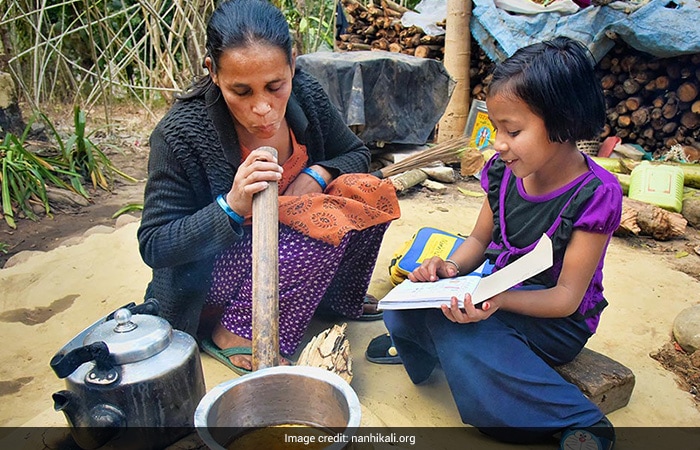 Nanhi Kali has also trained 5,000 tutors, who are called community associates.They are women from local communities who facilitate learning and mentor the Nanhi Kalis through their schooling, and also engage with parents/community stakeholders to create girl-friendly ecosystems.
Nanhi Kali has also trained 5,000 tutors, who are called community associates.They are women from local communities who facilitate learning and mentor the Nanhi Kalis through their schooling, and also engage with parents/community stakeholders to create girl-friendly ecosystems. -
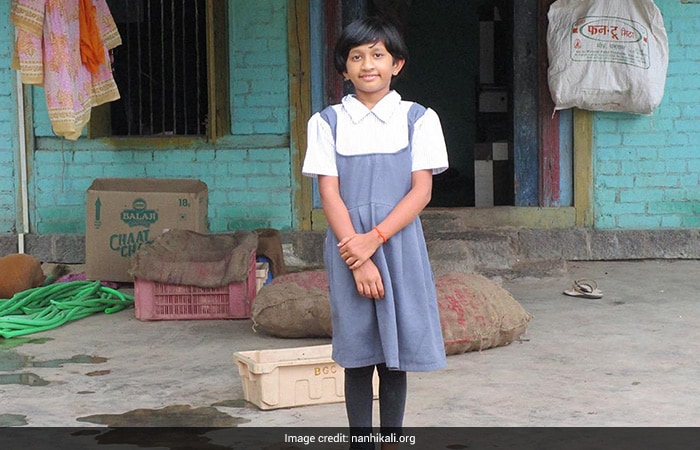 During COVID-19 times, in order to ensure that underprivileged girls continue their education, the Nanhi Kali team doubled their efforts by providing quality digital education to girls, so that they are equipped to face the post-covid world. The girls were indulged with small learning snippets that engaged them and let the learning process continue right throughout this pandemic period.
During COVID-19 times, in order to ensure that underprivileged girls continue their education, the Nanhi Kali team doubled their efforts by providing quality digital education to girls, so that they are equipped to face the post-covid world. The girls were indulged with small learning snippets that engaged them and let the learning process continue right throughout this pandemic period. -
 Talking about why it is important for India to educate the girls, Sheetal Mehta, Trustee & Executive Director, K.C. Mahindra Education Trust said, 'There has been overwhelming evidence that suggests educated girls and women contribute to the overall development of the nation. It is critical that these women participate in the economy. Women's economic empowerment boosts productivity. It also has a huge number of positive outcomes like it helps bring down the maternal mortality and infant mortality rates. When a woman is educated, she ensures all her children are educated. So, it's really a win-win situation.'
Talking about why it is important for India to educate the girls, Sheetal Mehta, Trustee & Executive Director, K.C. Mahindra Education Trust said, 'There has been overwhelming evidence that suggests educated girls and women contribute to the overall development of the nation. It is critical that these women participate in the economy. Women's economic empowerment boosts productivity. It also has a huge number of positive outcomes like it helps bring down the maternal mortality and infant mortality rates. When a woman is educated, she ensures all her children are educated. So, it's really a win-win situation.'
Advertisement
Advertisement
